What is General Food Science & Technology Hospitality all about?
Food is a major part of our life and is essential for general health and wellbeing. We all need to eat to survive. However food is more than survival, so If you have an interest or flare for cooking and nutrition then this unit is for you. Life skills are gained from the practical cooking classes, where students are able to take away cooking skills, make healthy food choices and discover the science of food and what is does for our bodies. Students have the advantage of working within a commercial kitchen, in a uniform, gaining knowledge of the use of commercial equipment. This unit has a strong focus on nutrition alongside cooking, and will enhance food knowledge, problem solving abilities and decision making skills
Who should select these units in Year 11?
This course enables students to pursue further studies, and may enhance the career opportunities of those students interested in cooking and hospitality, nutrition, community health, food and beverage manufacturing and retail. Having prior knowledge of, and experience, in foods classes in Years 8 – 10 is not essential but is definitely advantageous, to learning how to work within a commercial kitchen. Students interested in the behind the scenes story of food from paddock to plate and how it gets there are encouraged to apply.
Pathway
Students can continue General Food Science & Technology Hospitality Unit 3 & Unit 4 within Year 12, delving further into the world of food and how it is protected within Australia.
Areas of Study
UNIT 1 – Food choices & Health
- Classification of food
- Economic & Environmental Issues
- Sensory & Physical properties of food
- Nutrition
- Nutrients
- Nutrition & Adolescence
- Food Selection Models
- Raw & Processed foods
- Produce Raw & Processed Foods
- Factors influencing Food choices
- Environmental Issues from Food Choices
- Workplace Health & Safety
- Safe food handling practices
- Food Labelling Regulations
UNIT 2 – Food for Communities
- Staple Foods
- Factors affecting food supply
- Sensory properties of food
- Physical properties of food
- Processing techniques-effects on food
- Food sources and role of Macronutrients
- Macronutrient requirements throughout life
- Nutrition health conditions and specialised diets
- Australian Dietary Guidelines
- Food Products and processing staple foods
- Adolescent & Influences on Food choices
- Ethnicity & Food choices
- Health Issues arising from food choices
- Workplace regulations-safety and health
- Safe Food Handling Practices
- Labelling requirements
To provide for different learning styles a variety of assessment tasks are used. For each course of study tasks are selected from:
- Production – Practical assessments in the kitchen
- Investigation – Written research assessments (reports, portfolios)
- Response – Written evaluation in assessment tasks
What is General Food Science & Technology Hospitality all about?
Food is essential to health, wellbeing and life. Discovering what food does for us and how our bodies use it are understood through the application of science and technology. Properties of food and the needs of consumers and producers are realised. Food laws and the governing body FSANZ are uncovered for their role in food safety within Australia and New Zealand. Creativity is limitless as students develop their interests and skills through the design, research, marketing and production of new food products. Innovations in science and technology and changing consumer demands, delve into new and emerging, physical chemical and functional properties of food.
Ultimately learning how to cook is a life skill that is irreplaceable in today’s society.
Who should select these units in Year 12?
This course continues on from the Year 11 General Food Science & Technology Units 1&2. However if you are interested in the behind the scenes of who, what, when, where, and how food works; then you are encouraged to apply. Master Chefs are not required as learning an essential life skill such as cooking will happen throughout the year and within a commercial kitchen where students are in uniform and have access to all current commercial equipment.
Pathway
This area of study allows students to link to further studies, within an ever expanding area of the Food and allied heath sectors, within Australia and globally. These units will enhance employability and experience within commercial cookery, nutrition, health, food and beverage manufacturing, food processing, community services, hospitality and retail.
Areas of Study
UNIT 3 – Food Science
- Economic cost of raw and processed food
- Altering Sensory & Physical properties
- Functional properties-performance of food
- Nutrition
- Nutrients – Micronutrients role for health
- Effects of under consumption of nutrients
- Effects of over consumption of nutrients
- Investigating wet and dry processing
- Devising food products
- Technology process to produce food
- Evaluate food products
- Societal Influences on food choices
- Economic influences on food choices
- Food Standards Australia and New Zealand
- Food Labelling codes
- Food Act 2008
- Occupational Safety and Health Act 1984
UNIT 4 – The Undercover Story
- Food supply chain
- Concept of value adding to food
- Reasons for preserving food
- Food spoilage and contamination
- Principles of food preservation
- Dietary Planning
- Nutritional needs of the lifecycle
- Food modification and fortification
- Food influences
- Food processing techniques
- Devise food products
- Produce a preserved food product
- Evaluate preserved food products
- Food choices
- Marketing and food products
- Principles of HACCP system
- Regulation of food safety in Australia
- OSH Act 1984- rights and responsibilities of employers and employees in food
To provide for different learning styles a variety of assessment tasks are used. For each course of study tasks are selected from:
- Production – Practical assessments in the kitchen
- Investigation – Written research assessments (reports, portfolios)
- Response – Written evaluation in assessment tasks

